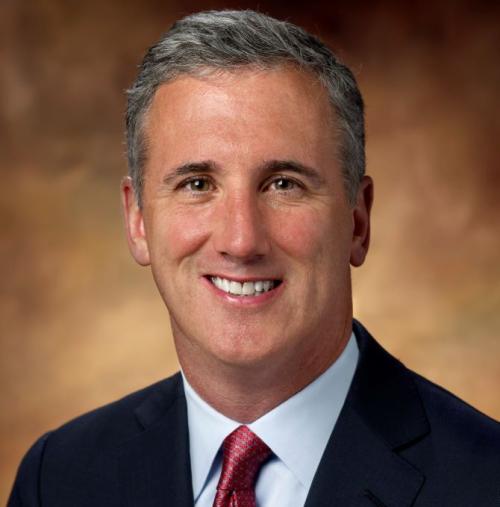Franklin Allen is Nippon Life professor of finance and economics at the Wharton School of the University of Pennsylvania.
 He has been on the faculty since 1980. Currently co-director of the Wharton Financial Institutions Center, he was formerly vice dean and director of Wharton doctoral programs and executive editor of the Review of Financial Studies. Here he talks to deputy editor Aarti Maharaj about why implementing a governance model that focuses on shareholder value may not be the best strategy.
He has been on the faculty since 1980. Currently co-director of the Wharton Financial Institutions Center, he was formerly vice dean and director of Wharton doctoral programs and executive editor of the Review of Financial Studies. Here he talks to deputy editor Aarti Maharaj about why implementing a governance model that focuses on shareholder value may not be the best strategy.
1. Do you think the regulators’ stance on corporate governance is strong enough to protect the economy from another financial meltdown?
The corporate governance of financial institutions did have an impact on the financial crisis, but it was not the primary reason for the meltdown. Nonetheless, shareholders now take a keen interest when banks are taking risks. For example, if I am a risk manager at a company, I can make a huge gain and the shareholders will make a lot of money, but if I make a loss, someone else has to bear it due to the company’s limited liability. Against this backdrop, when the meltdown occurred, the government had to intervene and bail out the major financial institutions. This shows that in the banking industry, shareholders were chasing the wrong type of incentives. Regulators may have taken note of this amid the crisis, and hopefully they’ll soon have things under better control in order to prevent such risk-taking.
2. How do governance and shareholder value complement each other? How does governance impact unemployment?
In the United States we have a strong focus on shareholder value, so when the bad times came there was a reduction in demand and what companies did during the post-crisis period was to lay off workers or fire them. The economy started growing only recently, and we still have high unemployment rates that might last a few years. If you look at countries like Germany and Japan, they experienced significant output shocks during the crisis: Germany’s GDP fell 7 percent and Japan’s fell 10 percent. And yet, unemployment in these countries did not increase very much. Meanwhile, the United States experienced a smaller drop in GDP, but there’s been a doubling of unemployment, from roughly 5 percent to 10 percent. In Germany, boards of large companies include worker representatives because of the country’s multifaceted corporate governance structure, so firms there don’t fire workers as routinely as US companies do.
Governance professionals need to be aware that if we experience another prolonged financial crisis, firms will have to think twice before laying off large numbers of workers like they did in this recession. In fact, what we can learn from this financial crisis is that we shouldn’t change companies’ governance models, but should consider temporarily implementing policies that they use in other countries to get around the problems we are experiencing.
3. What aspects of corporate governance should countries focus on?
It should be understood that different corporate governance models can yield different economic outcomes. Countries should be making efforts to identify a governance model that works best in their specific context. Countries may also need to understand the notion of value in a different way. Should they focus on shareholder value or on stakeholder value? There’s a difference. When managers are incentivized by profit, this can be very beneficial in booms, but it can lead to serious and enduring problems in busts, as we are seeing in the United States today. Other countries have done better than the United States on the unemployment issue, and I think this has to do with the governance system that is typical for US companies. We are now seeing the downsides of this governance system, which embraced the shift toward leaner workforces and more efficient production processes in the 1990s, and elevates profit-making above all else.
The result is that the classic ‘American Dream’ is not as reliable today as it once was. If this is an aberration, the model may well prove to have enduring value. If not, a broader shift to a different governance model may be needed.
4. Corporate secretaries and general counsel hold senior positions at companies and have direct access to the board. What should these professionals look for when identifying a sustainable and effective corporate governance model?
This is an important subject that governance professionals should address. The traditional literature on corporate governance suggests that the US /UK model is best, but now there’s some pushback as we see some of the enduring problems with persistent unemployment in the US economy.
In the US context, governance officers need to look for simplicity, as many problems occur when strategies and terminologies become overly complicated. A governance model should be constructed so that everyone can understand it and relate to it. Google received a lot of criticism for its governance practices because of its voting structure – those kinds of systems can work well because they are simple and everyone knows who is in control, but they can become less successful as time progresses. The one share, one vote model works well. In the long run a governance model should be open to change, and it should remain transparent and communicate a clear understanding of what its goals are.
5. When it comes to governance, clearly there’s no one-size-fits-all approach. You’ve said that countries need to identify a model that works best in their specific context – can you explain this further? How does the difference between shareholder and stakeholder value affect a governance model?
It all depends on the traditions in the various countries. In Japan there is a notion that employees have an important part to play in the company, and that the company isn’t there just for its shareholders, who legally own it. Shareholders don’t have that much power in Japan, while employees and managers have more power than in the West. These sorts of models won’t work well in the United States, however, and conversely, you can’t impose American practices on, say, the Indian governance model. It’s all about finding the right balance.








